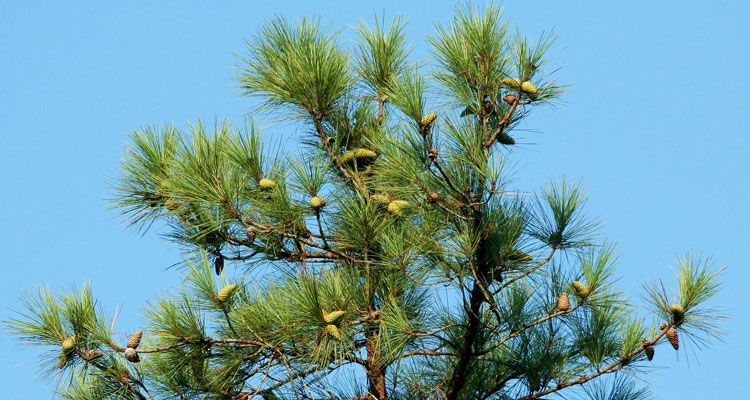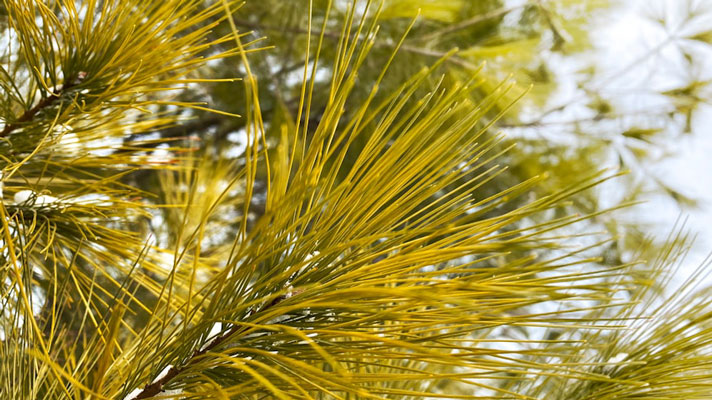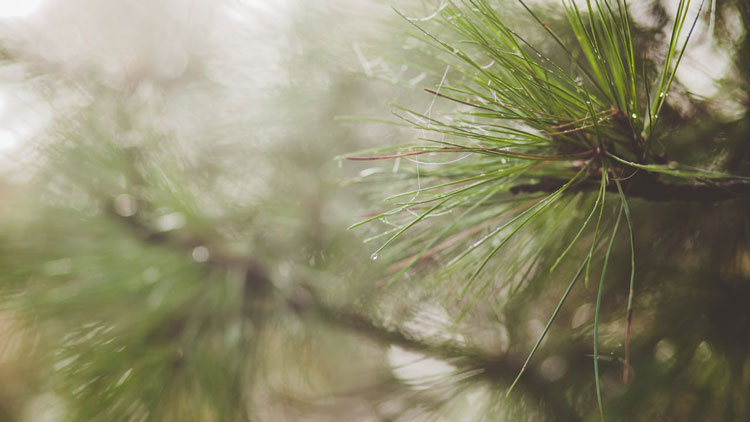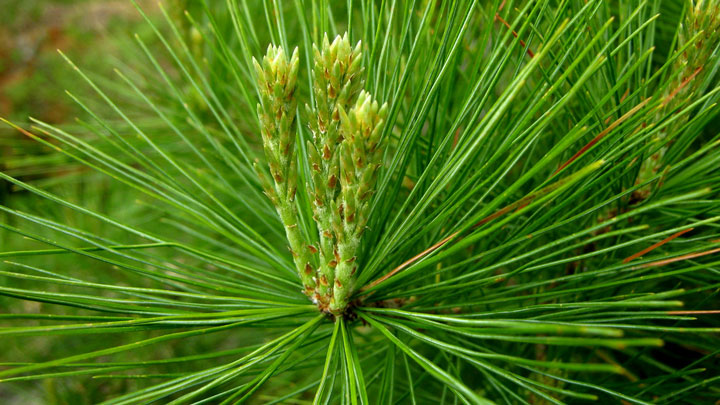There are many reasons to admire the lofty Pine tree. The root mushroom, pine cone, bark, pollen, oil, resin… All these components of the same tree lend marvelous health-promoting gifts to humanity. Today, however, we are going to examine those pointy pine needles for their free immune tonic effects. Will they help us navigate our health challenges?
The pine tree is more than just a hallmark of winter. Those stately boughs stand up to heavy snow and wind all winter. And pine trees are the first to welcome back the birds in springtime.
Keep It Green Fresh

Pine tree needles (Pinus spp) are, of course, known as evergreens. This means their needles do not die amidst the harsh, cold climate of northern winters. Pine knows how to keep it green… all year round! That means more free edible medicine for you and your family!
Identifying Pine Needles
Pine needles are easy to identify if you look at the needle count (fascicle) which will come in clusters of 1 to 6. But most occur in clusters of 2 to 5 needles. They’ll be connected to a pinecone and are generally longer in length, whereas spruce and fir conifer needles will be attached directly to the branch. Be sure you identify the right one before you use as medicine because some species (e.g., Ponderosa, Yew, etc.) can be toxic. (1)
High in Wholefood Vitamin C

Pine needles are an exceptional source of non-synthetic form of Vitamin C. In fact, they boast up to 5 x more C than orange juice! White pine needles helped cure scurvy for the famous European voyagers led by Jacques Cartier in the Canadian winter of 1536. (2)
This, too, can give you a well-deserved boost in your immune health, which comes in handy, especially during flu season. It’s also packed with pre-vitamin A, which supports bones, eyes, and the immune system.
Antioxidant Concentrate
One study identified a high concentration of pro-anthocyanidins and catechins in the hot water extracts of pine needles. That means that pine needle tea may carry these important antioxidant compounds. Those same compounds may also inhibit leukemia cell proliferation and protect against DNA damage. (3)
Shikimate-rich

Most pharmaceutical-grade antiviral medications on the market targeting influenza (e.g., Tamiflu) contain shikimic acid. This is because this compound holds very powerful immuno-stimulant properties. Modern research has shown that this same compound can be extracted from pine needles! (4)
Shikimic acid also has the unique ability to act as a natural blood thinner and assist with blood clots and thrombus formation. (5)
“Pine is an antiseptic that can be used internally to support the body in a speedy recovery. In respiratory infections where thick mucus is present, it works to draw phlegm up and out of the lungs. It’s also been used externally to draw out toxins or objects embedded in the skin.” (Wood, 2009) (6)
Pine Essential Oil
Certain essential oil constituents in the needles possess oxidative stress relief. These allies in the fight against contagion, Eugenol, Linalool, and Terpineol, are a few of the many phytochemicals in pine which utilize “molecular docking” in some RNA and DNA virus to inhibit replication. (7)
Nutrients such as chlorophyll and quercetin also help to regulate blood conditions like anemia.
If you’ve hit a sharp point in your health journey, then no need to be pining away in sadness. Instead pine up in joy!



